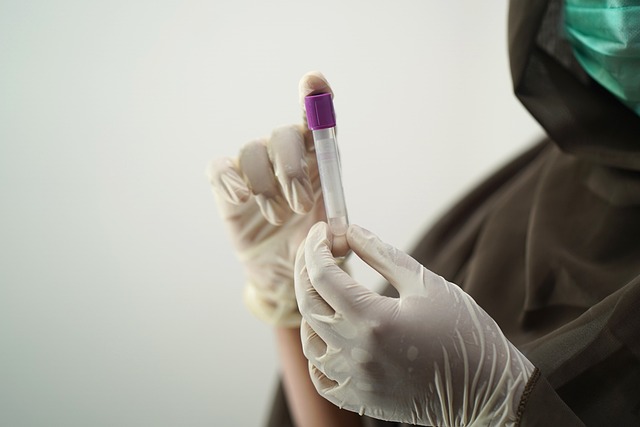The UK Vitamin D Blood Test is an essential diagnostic tool for monitoring vitamin D levels, particularly important given the UK's variable sunlight and the nutrient's wide-ranging benefits beyond bone health. Vitamin D, colloquially known as the 'sunshine vitamin,' influences numerous bodily functions including cell growth regulation, immune system support, and potentially reduces the risk of diseases such as type 1 diabetes, heart disease, certain cancers, and improves mental health outcomes. The test measures 25-hydroxyvitamin D [25(OH)D], the most reliable indicator of vitamin D status. It is a quick procedure involving a blood sample taken at local clinics, private health services, or through mobile phlebotomy, with results available within days. The UK National Health Service (NHS) advises regular sunlight exposure or supplement intake for adequate Vitamin D levels, particularly for those over five years old. Adequate levels are defined as 25 to 50 nmol/L by the NHS, with deficiency below 25 nmol/L and high levels above 125 nmol/L indicating potential health concerns. Regular testing is crucial for early detection of deficiencies, promoting wellness and reducing associated health risks within the UK population. Individuals should consult healthcare providers for personalized Vitamin D intake recommendations considering age, diet, skin pigmentation, and sun exposure.
Sunlight and wellness converge at the biological crossroads of vitamin D, a pivotal nutrient influencing myriad aspects of health. This article demystifies its role within the UK population and guides readers through the essential UK Vitamin D Blood Test process. It also delves into interpreting vitamin D levels, offering insights into their implications for overall wellness. Understanding and maintaining optimal vitamin D levels is a cornerstone of health, and this article serves as your compass in navigating this aspect of personal healthcare.
- Understanding the Role of Vitamin D in Health: A Comprehensive Guide to its Importance and Functions
- The Process of UK Vitamin D Blood Test: Step-by-Step Procedures and What to Expect
- Interpreting Vitamin D Levels: Ranges, Deficiencies, and Implications for Overall Wellness in the UK Population
Understanding the Role of Vitamin D in Health: A Comprehensive Guide to its Importance and Functions

Vitamin D, often referred to as the ‘sunshine vitamin’, plays a pivotal role in maintaining overall health and wellness. This essential nutrient is not solely responsible for calcium metabolism and bone health but also influences a multitude of biological functions throughout the body. In the UK, a land with variable sunlight exposure, ensuring adequate Vitamin D levels is crucial for both physical and mental well-being. The UK Vitamin D Blood Test is an invaluable tool for individuals looking to assess their vitamin D status accurately. This test measures the amount of vitamin D in the bloodstream, primarily in the form of 25-hydroxyvitamin D [25(OH)D], which is the best indicator of vitamin D levels. By understanding one’s vitamin D status, individuals can take proactive steps to address any deficiencies through dietary changes or supplementation.
Vitamin D functions beyond its well-known role in calcium absorption and bone health. It has been linked to modulating cell growth, enhancing immune function, and potentially reducing the risk of certain diseases such as type 1 diabetes, heart disease, and even some forms of cancer. Additionally, emerging research suggests that optimal vitamin D levels may contribute to better mental health outcomes by influencing mood and reducing the risk of depression. The UK Vitamin D Blood Test provides a clear picture of one’s vitamin D levels, enabling personalized health strategies. For those concerned about their vitamin D status, this test offers a reliable method to inform dietary plans or lifestyle adjustments that could lead to improved health outcomes. Understanding the comprehensive role of vitamin D is essential for anyone looking to maintain and improve their overall wellness.
The Process of UK Vitamin D Blood Test: Step-by-Step Procedures and What to Expect

When assessing vitamin D levels for overall wellness, individuals in the UK can opt for a vitamin D blood test, which is a straightforward and reliable method to determine their vitamin D status. The process begins with an appointment at a local clinic, private health service, or through a mobile phlebotomy provider. Upon arrival, a healthcare professional will prepare the testing site on your arm by cleaning the skin with an antiseptic swab and securing the area with a band or clip to minimize blood flow. They will then take a blood sample from a vein, usually from the inside of the elbow or the back of the hand. This is done by inserting a sterile needle into the vein, collecting a small amount of blood in an evacuated tube. The entire process is quick and relatively painless; most individuals feel only a brief sensation of pressure.
After the blood sample is collected, it is sent to a laboratory for analysis. In the UK, the National Health Service (NHS) laboratories or accredited private laboratories perform the test. The process involves measuring the levels of 25-hydroxyvitamin D in the blood, which is the most accurate indicator of vitamin D status. Results typically take a few days to a week to become available. The healthcare provider will then review the results with you, discussing any necessary dietary or lifestyle adjustments based on your vitamin D levels and overall health. It’s important for individuals to maintain appropriate levels of vitamin D as it plays a key role in bone health, immune function, and overall well-being.
Interpreting Vitamin D Levels: Ranges, Deficiencies, and Implications for Overall Wellness in the UK Population

In the UK, maintaining optimal levels of Vitamin D is crucial for overall wellness, given the country’s northerly latitude and often cloudy climate, which can limit natural sunlight exposure. The UK National Health Service (NHS) recommends that adults and children over five years old should consider taking supplements if they are not regularly exposed to sunshine or fortified foods. Vitamin D levels are typically measured through a blood test known as the UK Vitamin D Blood Test, which can be conducted at NHS clinics or private healthcare providers. The ranges for what constitutes sufficient Vitamin D levels are often debated; however, the NHS sets a reference range for serum 25-hydroxyvitamin D (25(OH)D), with levels between 25 to 50 nanomoles per litre (nmol/L) considered sufficient for most people. Vitamin D deficiency is characterized by levels below 25 nmol/L, which can lead to a host of health issues including musculoskeletal problems such as rickets and osteomalacia in adults, as well as an increased risk of cardiovascular disease, certain cancers, and respiratory infections. Conversely, high levels of Vitamin D, above 125 nmol/L, may also indicate oversupplementation or another health condition that requires medical attention. Regular monitoring of Vitamin D levels through the UK Vitamin D Blood Test is essential for early detection and management of deficiencies, thereby supporting overall wellness and reducing the risk of associated health complications within the UK population. It’s advisable for individuals to discuss their personal health status and Vitamin D requirements with a healthcare provider, as supplementation needs can vary based on age, dietary habits, skin pigmentation, and sunlight exposure.
In conclusion, the role of vitamin D in maintaining overall wellness is undeniably significant, and understanding its importance and functions is key for individuals in the UK. The process of undergoing a UK Vitamin D Blood Test is straightforward, providing clear insights into one’s health status. With the guidance offered in interpreting vitamin D levels, individuals can take proactive steps towards ensuring their levels are optimal, which is crucial for bone health, immune function, and general well-being. Regular testing through a UK Vitamin D Blood Test is an essential part of preventive healthcare, enabling timely intervention should deficiencies be detected. Thus, staying informed about one’s vitamin D status and making necessary lifestyle adjustments can significantly contribute to long-term health and vitality.
